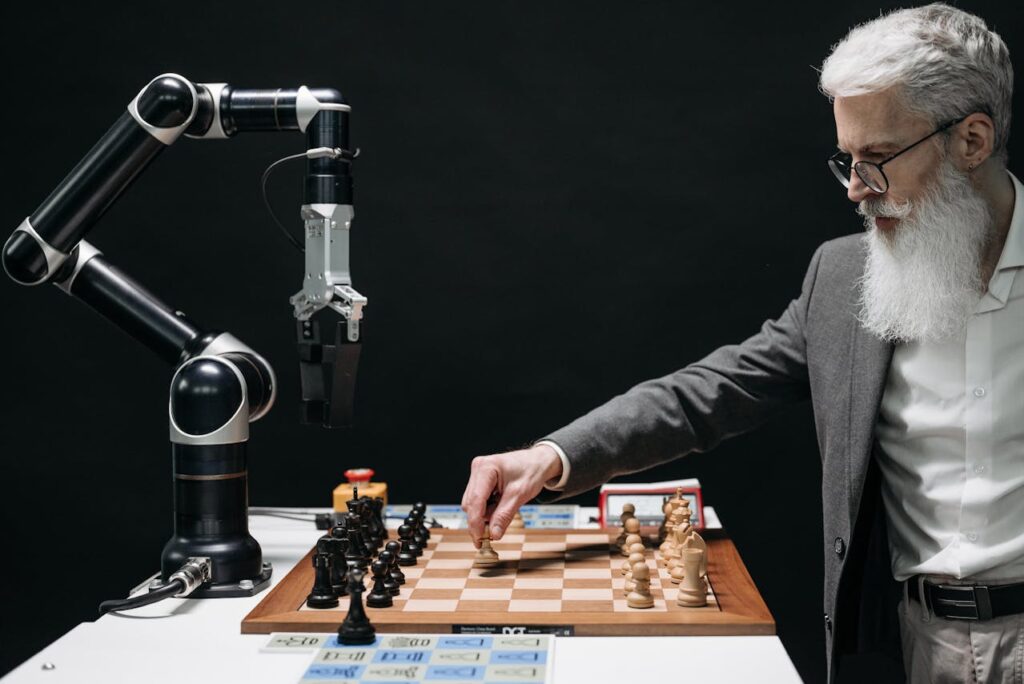As artificial intelligence (AI) continues to evolve, its integration into everyday devices is becoming more profound and transformative. From enhancing the performance of household appliances to revolutionizing personal gadgets, AI is not just a buzzword; it’s a fundamental shift in how we interact with technology. This article explores the numerous ways AI is improving device functionality, providing insights into specific applications and benefits that are shaping our daily lives.
In the digital age, artificial intelligence has moved beyond its traditional confines and is now embedded in many aspects of our lives. With the ability to learn, adapt, and respond to user needs, AI enhances the functionality of everyday devices such as smartphones, smart home systems, kitchen appliances, and more. This article delves into various subtopics related to AI’s impact on everyday devices, offering a deeper understanding of this revolutionary technology.
What is Artificial Intelligence? Artificial intelligence refers to the simulation of human intelligence processes by machines, especially computer systems. These processes include learning, reasoning, and self-correction.
How does AI improve everyday devices? AI improves everyday devices by enabling them to learn user preferences, automate tasks, provide personalized experiences, and enhance overall efficiency.
Are there any risks associated with AI in everyday devices? While AI offers numerous benefits, risks include privacy concerns, security vulnerabilities, and over-reliance on technology. It’s essential to use AI responsibly to mitigate these risks.
Smart Home Technology
Smart home technology has taken the world by storm, transforming ordinary houses into intelligent living spaces. With AI at the core of smart devices, homeowners can control nearly every aspect of their homes remotely or automatically.
- Automated Lighting: AI-enabled lighting systems learn user routines and adjust brightness based on the time of day or occupancy, resulting in energy savings and enhanced convenience.
- Smart Thermostats: Devices like Nest use AI algorithms to analyze heating and cooling patterns, thereby optimizing temperature settings to create a comfortable environment while reducing energy costs.
- Voice Assistants: AI-powered voice assistants such as Amazon Alexa and Google Assistant provide hands-free control over smart home devices, allowing users to manage their environment effortlessly.
- Security Systems: Advanced AI algorithms enable smart security cameras and alarms to differentiate between normal activity and potential threats, ensuring higher levels of safety.
- Energy Management: AI helps monitor energy consumption across devices, suggesting ways to reduce usage and cut down on utility bills.
Wearable Technology
Wearable technology is another arena where AI is making significant strides. From fitness trackers to smartwatches, these devices utilize AI to provide valuable health insights and improve user experience.
- Health Monitoring: Wearables equipped with AI algorithms can track vital signs such as heart rate, sleep patterns, and stress levels, giving users real-time feedback on their health.
- Personalized Fitness Coaching: AI-driven apps analyze user data to create customized workout plans and suggest exercises tailored to individual fitness goals.
- Predictive Analytics: Some wearables leverage AI to predict potential health issues based on user history, prompting timely medical consultations.
- Sleep Optimization: AI technology can assess sleep quality and offer personalized recommendations for better rest, helping users achieve optimal health.
- Notifications Management: AI can intelligently filter notifications on wearables, ensuring that users receive only the most relevant alerts during their daily activities.
Smart Appliances
From refrigerators to washing machines, smart appliances are changing how we perform household chores. AI enhances these devices’ capabilities, making them more efficient and user-friendly.
- Intelligent Refrigerators: AI fridges can track inventory, suggest recipes based on available ingredients, and even order groceries when supplies run low.
- Washing Machines: Smart washers utilize AI to determine the best wash cycle and detergent amount based on the fabric type, saving both time and resources.
- Ovens and Cooktops: AI-enabled cooking appliances can learn user preferences and adjust cooking times and temperatures accordingly, resulting in perfectly cooked meals.
- Vacuum Cleaners: Robotic vacuums utilize AI to navigate around the home, optimizing cleaning paths and avoiding obstacles to ensure effective cleaning.
- Coffee Makers: Smart coffee machines can be programmed via an app to brew coffee at specific times, customizing brew strength and flavor profiles according to user preferences.
Transportation and Navigation
The integration of AI in transportation is revolutionizing how we travel. From autonomous vehicles to smart navigation systems, AI is enhancing safety, efficiency, and user experience.
- Autonomous Vehicles: Self-driving cars utilize complex AI algorithms to interpret sensory information, enabling them to navigate safely through various environments without human input.
- Traffic Prediction: AI-powered navigation apps analyze real-time data to predict traffic conditions, helping users choose the fastest routes to their destinations.
- Ride-Sharing Services: AI optimizes ride-sharing platforms by dynamically adjusting pricing, matching riders with drivers, and estimating arrival times.
- Fleet Management: Businesses utilize AI to monitor vehicle performance and predict maintenance needs, leading to reduced downtime and improved operational efficiency.
- Public Transportation: AI can enhance route planning for buses and trains based on passenger demand, ensuring timely and efficient service.
Health and Fitness Applications
AI is also playing a crucial role in the health and fitness sector. Applications powered by AI are helping individuals lead healthier lifestyles and manage chronic conditions effectively.
- Dietary Recommendations: AI-based apps analyze dietary habits and provide personalized meal plans aimed at achieving fitness goals or managing health conditions.
- Virtual Health Assistants: AI-driven chatbots can answer health-related queries, schedule appointments, and remind users about medication, providing continuous support.
- Fitness Tracking Apps: AI algorithms help customize workout regimes based on individual performance metrics, ensuring exercises align with personal fitness objectives.
- Chronic Disease Management: AI applications can monitor symptoms and medication adherence, offering real-time updates to healthcare providers for better patient management.
- Telehealth Services: AI enhances telemedicine by providing diagnostic support, facilitating virtual consultations, and analyzing patient data for more accurate assessments.
The integration of artificial intelligence into everyday devices is not just a trend—it’s a fundamental shift in the way we live, work, and interact with technology. From smart home systems to wearable tech, AI offers enhanced functionality that streamlines tasks, optimizes energy usage, and improves overall user experiences. As this technology continues to advance, it holds the promise of making our lives easier and more efficient. Embrace these innovations today and unlock the full potential of your everyday devices.










